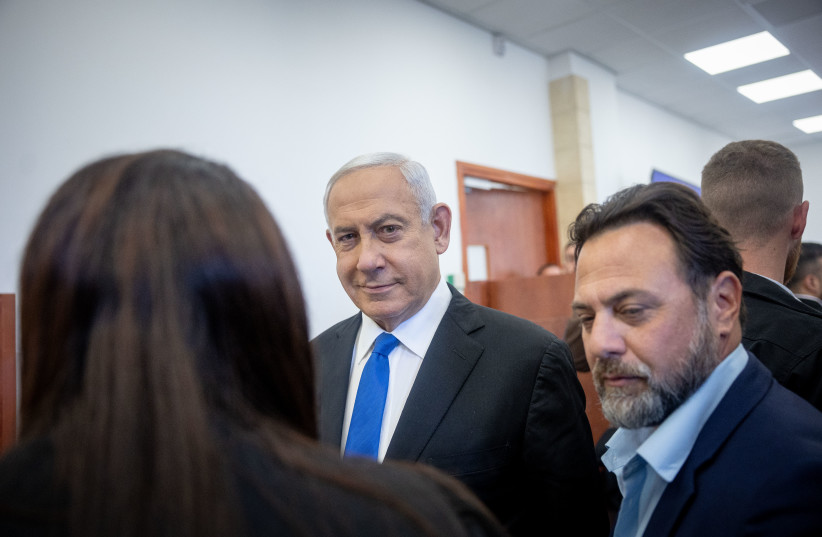The prosecution on Wednesday tried to get key witness Shlomo Filber to acknowledge that his alleged critical meeting with then-prime minister Benjamin Netanyahu to hatch the regulatory side of the Case 4000 scheme could have happened in May 2015.
The prosecution suggested two dates for the meeting: May 22 and May 27, both in 2015.
The background
Although Filber, a former top Netanyahu aide turned state’s witness, said it was not impossible that he had discussed the key media bribery issues in the Bezeq-Walla Affair during those meetings with Netanyahu, he stood by his view that the issues in question only came up after the government approved his appointment in early June 2015.
The issue has outsized significance in the case because the prosecution has put much of its case at stake on the idea that this first meeting is the gloss with which the court should read Filber’s future actions that helped Bezeq.

In contrast, the defense has said the meeting was invented by the police and Filber to try to tear down Netanyahu, and that their success is disproving the prosecution’s initial theory – that the meeting happened the second week of June 2015 – boosts their argument.
Changing the language
On May 31 of this year, the Jerusalem District Court rejected the prosecution’s key request to amend its Case 4000 indictment narrative, while approving a lesser request to amend the Case 1000 narrative.
The rejection was a major setback for the prosecution, but the judges notably left the door open to a conviction using an esoteric provision of the law.
On May 15, in a stunning reversal, the prosecution filed the request to amend the indictment.
According to the request, the state would back off from giving an exact week when an alleged key meeting took place between Netanyahu and Filber. Instead, it would have claimed the meeting took place without giving a date other than saying it was around the time when Filber was appointed Communications Ministry director-general.
The reversal came after a win by the defense when they used a mix of GPS cellphone location data as well as data from the Prime Minister’s Office security clearance records to demonstrate that Filber could not have met with Netanyahu at the time the prosecution said a critical meeting took place.
The revelation might be the single most important factual victory by the defense to date in undermining aspects of the prosecution narrative.
Given the court’s rejection of the prosecution’s motion to amend, it has sought to propose new dates when the key meeting could have occurred.
Filber had already finished almost two months of being cross-examined on Tuesday. The prosecution’s rebuttal questioning might end on Monday of next week and the case could finally move on from Case 4000 to Case 1000, the Illegal Gifts Affair.
